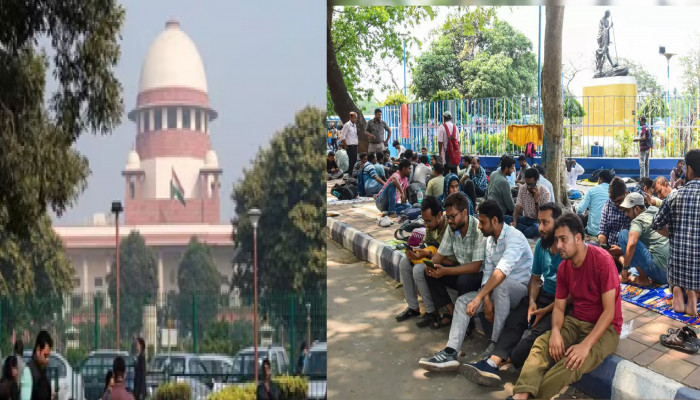'Students' studies shouldn't suffer': SC rules Bengal's 'untainted' teachers can stay
- In Reports
- 03:52 PM, Apr 17, 2025
- Myind Staff
On Thursday The Supreme Court, stressing that students’ education should not be affected, allowed West Bengal teachers — whose appointments were cancelled earlier this month due to recruitment irregularities — to continue teaching until a new selection process is held.
This temporary relief is only for ‘untainted’ teachers — those who were not found guilty of any wrongdoing during the investigation into the 2016 recruitment — and applies only to teachers of Classes 9 to 12. The Supreme Court has set a deadline for the West Bengal School Service Commission (SSC), ordering that the recruitment advertisement must be released by May 31, and the whole hiring process should be finished by December 31. “We are inclined to accept the prayer made in the application in so far as it relates to the assistant teachers of classes 9 and 10 and classes 11 and 12. Subject to the following conditions that the ad for fresh recruitment shall be out by May 31 and the exam, including the entire process, shall be done by December 31,” said Chief Justice Sanjiv Khanna.
“The state government and the commission shall file an affidavit in or before May 31, enclosing the ad copy as well as the schedule so as to ensure the completion of the recruitment process by December 31. In case the ad is not published as directed, appropriate orders shall be passed, including imposition of costs,” he added.
However, the court made it clear that this relief does not apply to non-teaching staff, like Group C and Group D employees, who are part of the 25,000 appointments that the Supreme Court cancelled on April 7. “We are not inclined to accept the prayers of Group C and D employees, as the number of established tainted candidates is higher in number. What has prompted us to pass this order for untainted assistant teachers is that students undergoing studies should not suffer on account of the order passed by this court,” the Bench said. The Supreme Court’s order comes at a time when many government schools are facing a shortage of staff due to large-scale dismissals. Following this situation, the SSC and the state government approached the court seeking relief.
The Chief Justice-led Bench characterised the 2016 hiring process as essentially defective in its ruling on April 7. “In our opinion, this is a case wherein the entire selection process has been vitiated and tainted beyond resolution. Manipulations and frauds on a large scale, coupled with the attempted cover-up, have dented the selection process beyond repair and partial redemption. The credibility and legitimacy of the selection are denuded,” the apex court had said.
As per the ruling, people who are not clearly named as guilty won't have to return the salaries they were paid, but they will still lose their jobs. “However, their services will be terminated. Furthermore, no candidate can be appointed once the entire examination process and results have been declared void,” the order read. On the other hand, those found guilty of misconduct must repay the salaries they received. The Mamata Banerjee government had challenged the high court’s decision to cancel all appointments, arguing that there should be a clear separation between those who were involved in irregularities and those who were not.
West Bengal Chief Minister Mamata Banerjee disagreed with the Supreme Court’s verdict and said that transferring the affected staff would have been a fairer option. “I have a question here. If the only consequence after crores are recovered from a judge's house is a transfer, they could have just transferred these 25,000 brothers and sisters as well,” she said.
Elaborating that her remarks were not aimed at the judiciary, Banerjee added, “We have no complaint against any judge. But, as a citizen, I have every right to say — with respect to the judiciary — that I cannot accept the judgment.” She further said, “We cannot criticise a judge, but we can express our views on humanitarian grounds.”
However, the Supreme Court upheld the earlier ruling, citing the scale of manipulation. “We are convinced that the entire selection process was intentionally compromised due to the illegalities involved,” it observed, noting that identifying untainted candidates was difficult, "given the scale of camouflage and dressing up done at each stage.”







Comments